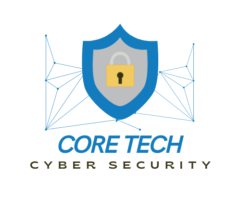In the world of cybersecurity, vulnerability scanning is a critical component of protecting your systems from threats. Nessus, a popular vulnerability scanner developed by Tenable, is known for its comprehensive capabilities, ease of use, and reliability. In this review, we’ll dive into what makes Nessus a top choice for professionals and organizations looking to secure their networks.
What is Nessus?
Nessus is a widely used vulnerability scanner that helps identify security weaknesses in IT environments. It scans networks, applications, and systems for known vulnerabilities, misconfigurations, and policy violations, allowing IT professionals to remediate these issues before they can be exploited by attackers.
Key Features of Nessus
1. Comprehensive Vulnerability Detection
Nessus boasts one of the most extensive vulnerability databases, allowing it to detect a wide range of security issues. This includes outdated software, missing patches, misconfigurations, and vulnerabilities across various operating systems, applications, and network devices.
2. Ease of Use
One of the biggest advantages of Nessus is its user-friendly interface. The tool is designed with simplicity in mind, making it easy for both beginners and experienced users to run scans, view results, and generate reports. The setup process is straightforward, and it offers pre-configured scan templates that can be customized as needed.
3. Customizable Scans
With Nessus, you have the flexibility to tailor your scans according to your needs. You can schedule scans, choose specific targets, and adjust the scanning depth. This ensures that you get the most relevant and detailed information about the vulnerabilities in your environment.
4. Detailed Reporting and Remediation Recommendations
After each scan, Nessus provides detailed reports with clear explanations of the vulnerabilities discovered, their severity levels, and recommendations for remediation. This helps IT teams prioritize their efforts and quickly address the most critical issues.
5. Integration with Other Tools
Nessus can be integrated with various other security tools and platforms, such as SIEM (Security Information and Event Management) systems. This ensures seamless data sharing and enhances your overall security posture.
Pros and Cons of Nessus
Pros:
- Extensive vulnerability coverage: Detects a wide range of vulnerabilities across multiple platforms.
- User-friendly: Intuitive interface makes scanning and reporting easy for all experience levels.
- Detailed reports: Provides in-depth information and remediation guidance for identified issues.
- Regular updates: The vulnerability database is continuously updated to stay current with the latest threats.
Cons:
- Cost: While Nessus Essentials is free for limited use, the paid versions, such as Nessus Professional, can be expensive for larger organizations.
- Resource-intensive: In some cases, Nessus scans can be resource-heavy and may slow down network performance during large-scale scans.
Who Should Use Nessus?
Nessus is suitable for a wide range of users, from small businesses and independent consultants to large enterprises. The Nessus Essentials version is ideal for individuals and small teams who need a free vulnerability scanning tool, while Nessus Professional is better suited for larger organizations with more complex networks.
Conclusion
For anyone looking to streamline vulnerability scanning and improve network security, Nessus is an excellent choice. Its comprehensive detection capabilities, ease of use, and robust reporting features make it one of the top vulnerability scanners on the market. Whether you’re managing a small network or an enterprise-level infrastructure, Nessus simplifies the process of identifying and addressing security risks.
